7 Free Keyword Research Tools
Free Keyword Research Tools is a crucial part of SEO and content creation, helping websites attract the right audience and rank higher in search engine results. While tools like Google Trends can offer valuable insights into keyword popularity over time, they come with limitations, such as not providing in-depth search volume data or competition metrics. This is where other free keyword research tools come in, each offering unique features and strengths. By combining multiple free keyword research tools or paid tools, you can get a more comprehensive view of keywords, helping you refine your strategy with insights that no single tool could provide on its own.
7 Free Keyword Research Tools :
Unlock your SEO potential with these seven Free Keyword Research Tools. Each tool offers unique features to help you find valuable keywords, analyze competition, and optimize your content effectively.
1- Google Keyword Planner
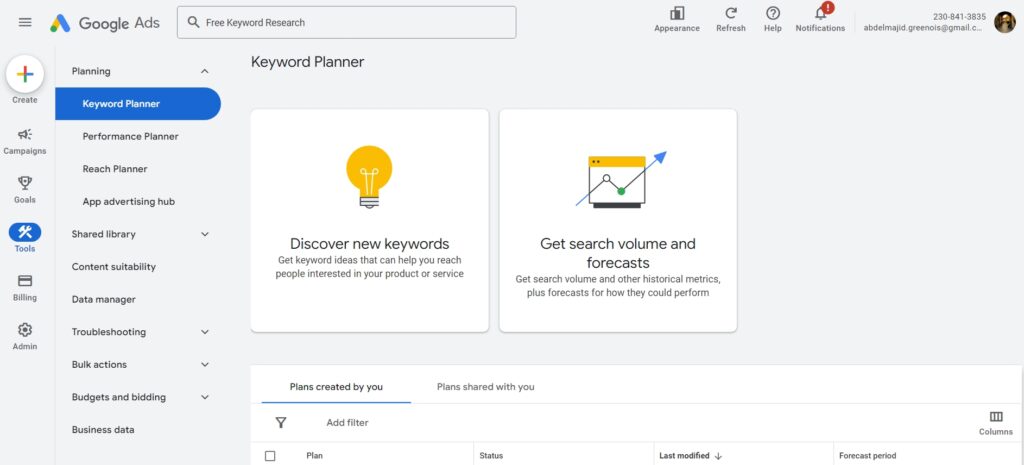
Google Keyword Planner is a powerful tool for keyword research, offering invaluable data on search volume and keyword targeting for both SEO and PPC campaigns. It allows users to explore keyword suggestions and gauge their potential effectiveness based on historical search data.
Benefits:
- Search Volume Data: Access to monthly search volume estimates helps you understand how popular specific keywords are, allowing for better strategic planning.
- Targeting Capabilities: You can target keywords by location, language, and even demographic data, making it easier to tailor your content to the right audience.
Limitations:
- Google Ads Account Required: To access the full features of Google Keyword Planner, you need a Google Ads account, which may be a barrier for some users.
- Limited Suggestions: The tool may provide limited keyword suggestions, especially for niche topics.
Tip for Non-Google Ads Users: If you don’t want to run an ad campaign, consider setting up a dummy campaign to gain full access to the tool’s capabilities without spending money. This workaround can help you utilize the planner effectively.
2- Moz Keyword Explorer (Free Tier)
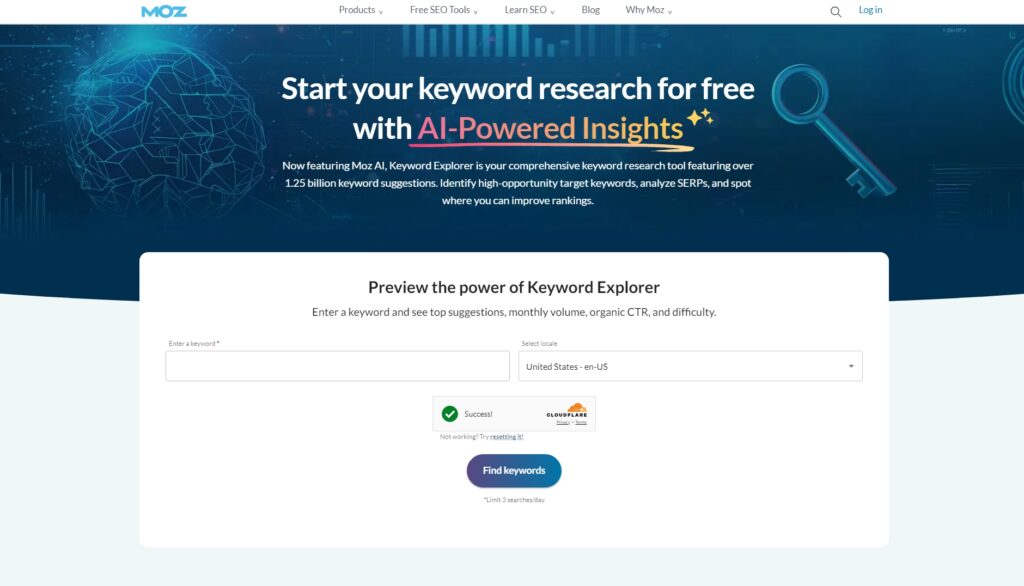
Moz Keyword Explorer is another excellent resource for keyword research, particularly useful for understanding keyword difficulty and analyzing search engine results pages (SERPs).
Benefits:
- Keyword Difficulty Scores: This feature helps you assess how challenging it might be to rank for a particular keyword, allowing you to prioritize efforts on keywords that are achievable yet valuable.
- SERP Analysis: Users can view the current top-ranking pages for specific keywords, providing insights into what content performs well and how to optimize your own.
Limitations:
- Free Usage Restrictions: While Moz offers a robust free tier, users need to create a Moz account, and the free version has limitations on the number of queries per month.
Complementary Insights: Moz’s data can be particularly beneficial when used alongside Google Keyword Planner, as it offers additional insights into search volume trends across different regions and topics. This can help you identify emerging trends or regional keyword preferences that might not be apparent from Google’s data alone.
3- Semrush (Free Tier)
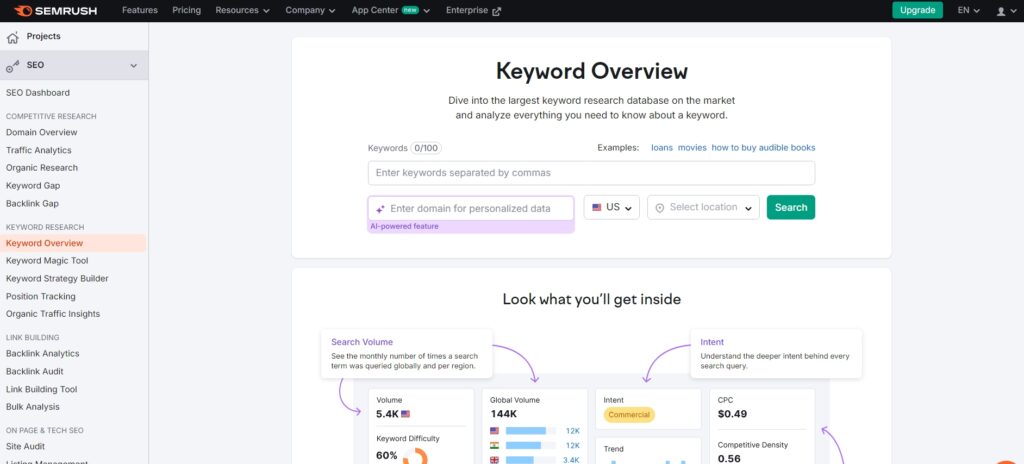
Semrush is a comprehensive SEO suite that offers a wide range of tools, including powerful keyword research capabilities. It allows users to explore keywords, analyze competitors, and evaluate overall SEO performance, making it a valuable resource for anyone looking to enhance their online presence.
Benefits:
- Comprehensive Keyword Research: Users can access a wealth of keyword data, including search volume, keyword difficulty, and trends, which is crucial for effective content planning.
- Competitor Analysis: The tool also provides insights into your competitors’ keyword strategies, allowing you to identify gaps and opportunities in your own keyword targeting.
- One of top Free Keyword Research Tools (Free Limit, Paid Plans)
Limitations:
- Free Tier Restrictions: While Semrush offers a wealth of features, the free tier comes with limitations, including a cap on the number of searches you can perform each day. Users will need to manage their usage to get the most out of this tool without hitting the limit.
Expectations Management: Understanding these limitations is essential for users, as it helps set realistic expectations about what can be achieved with the free tier. Consider upgrading to a paid plan if you find the tool beneficial for more extensive research.
4- Ahrefs Webmaster Tools (Free)
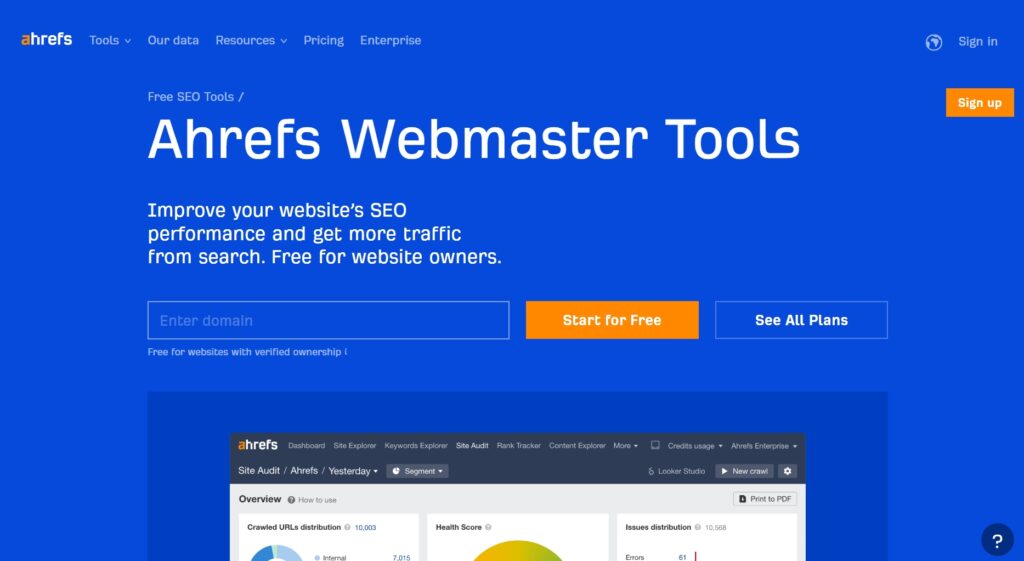
Ahrefs Webmaster Tools provides essential insights into your website’s performance and helps you with keyword research, focusing on search volume and keyword difficulty. It’s a fantastic option for those looking to enhance their SEO strategy without incurring costs.
Benefits:
- Search Volume and Difficulty Insights: Users can quickly check the search volume for specific keywords and assess how difficult it might be to rank for them, enabling better content optimization strategies.
- Website Performance Analysis: In addition to keyword data, Ahrefs also offers valuable insights into your site’s backlinks and overall performance, helping you identify areas for improvement.
- The best thing in ahrefs is that Free Keyword Research Tools and SEO audit for your website.
Limitations:
- Data Set Differences: Ahrefs relies on its own database, which differs from Google’s. While this provides unique insights, it may also lead to variations in search volume estimates compared to other tools.
Diverse Keyword Trends: This diversity in data can help users get a broader view of keyword trends and competition. By leveraging Ahrefs alongside other tools like Google Keyword Planner and Moz, you can develop a more comprehensive keyword strategy that accounts for various perspectives and data points.
5- Google Search Console
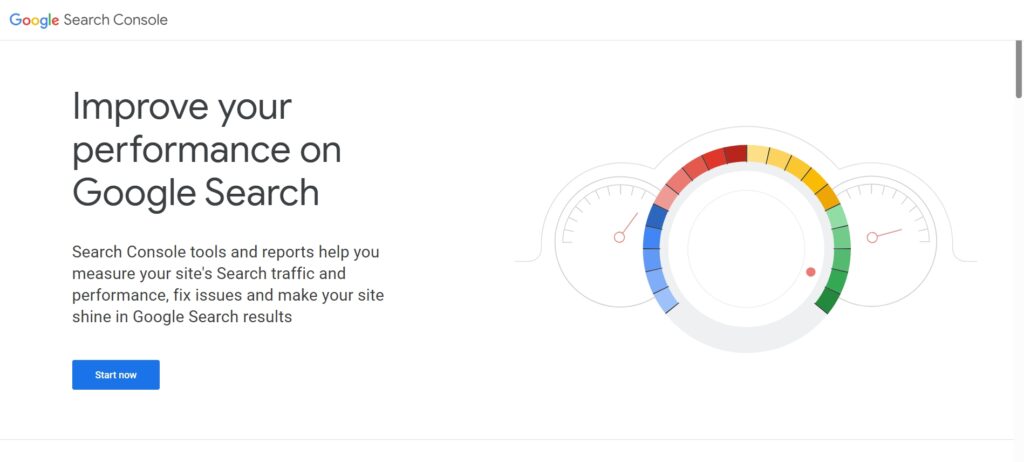
Google Search Console is an invaluable tool for website owners, providing insights into how your site performs in Google search results. It allows you to monitor traffic, fix issues, and understand which keywords are driving visitors to your site.
Benefits:
- Existing Site Traffic Insights: Users can analyze the performance of their website, including impressions, clicks, and average positions for various keywords. This data helps you understand what is working and where improvements can be made.
- Queries and Performance Reports: The “Performance” report reveals the specific queries that lead users to your site, offering a clear picture of which keywords are generating traffic. This information can guide your content strategy and help optimize underperforming pages.
- This Free Keyword Research Tools one of free tools in google you should try other free tools like website performance, speed page and other great free keyword research tools and seo tools
Limitations:
- Focus on Your Website: While Google Search Console provides great insights into your existing traffic, it doesn’t offer broader keyword research capabilities or suggestions for new keywords beyond what you are already ranking for.
Actionable Insights: By utilizing the query data, you can identify opportunities for content expansion and optimization, addressing potential keyword cannibalization issues and ensuring that your pages are targeting distinct keywords effectively.
6- Backlinko (Alternative for In-Depth Analysis)
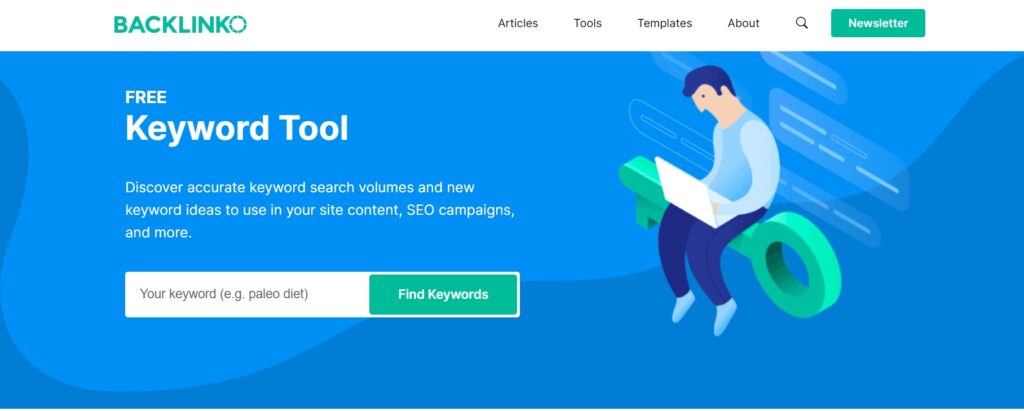
Backlinko, founded by Brian Dean, is renowned for its in-depth resources on SEO and link building. While not a traditional keyword research tool, it offers valuable insights and strategies that can enhance your keyword research and content creation processes.
Benefits:
- Analytical Insights: Backlinko provides comprehensive guides and case studies that focus on SEO best practices, including keyword research strategies, content optimization, and backlink opportunities.
- Competitor Analysis: Users can learn how to analyze competitors’ strategies effectively, identifying keywords they rank for and uncovering potential gaps in your own keyword strategy.
- I recommend this website cause it genius and his founder Brian Dean provide us free keyword research tools.
Limitations:
- Not a Direct Keyword Tool: It’s important to note that Backlinko does not generate keyword suggestions directly. Instead, it serves as a learning resource that helps you understand how to leverage keyword research tools effectively.
Complementary Resource: While Backlinko doesn’t replace tools like Google Keyword Planner or Moz Keyword Explorer, it enhances your overall SEO knowledge. By combining the strategic insights from Backlinko with traditional keyword tools, you can create a more effective and informed keyword strategy.
7- Keyword Tool.io
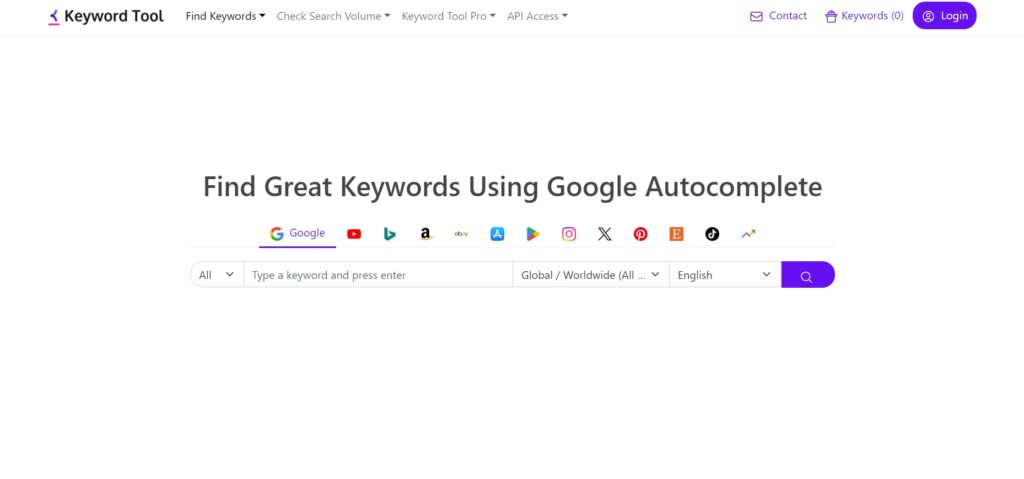
Keyword Tool.io is a versatile keyword research tool that excels at generating a wide array of keyword suggestions, particularly long-tail keywords, which are essential for targeting specific audience segments.
Benefits:
- Long-Tail Keyword Suggestions: This tool can generate hundreds of keyword ideas from a single search term, making it an excellent resource for content creators looking to capture niche markets.
- Multiple Platforms: Keyword Tool.io provides keyword suggestions not only for Google but also for other platforms like YouTube, Bing, Amazon, and more, allowing you to expand your keyword strategy across different channels.
- One of new tools in free keyword research tools you can try it and see if works for you, i think it is give great results.
Limitations:
- Filtering Needed: While the tool generates many suggestions, it may also produce less relevant keywords. Users should be prepared to filter through the results to find the most applicable keywords for their content.
Niche Focus: Its ability to uncover niche keywords makes it particularly valuable for specialized content. By combining insights from Keyword Tool.io with data from other tools, you can refine your keyword strategy to target both broad and specific search queries effectively.
Conclusion – 7 free keyword research tools
In conclusion, leveraging a variety of free keyword research tools is essential for developing an effective SEO strategy. Each tool discussed—Google Keyword Planner, Moz Keyword Explorer, Semrush, Ahrefs Webmaster Tools, Google Search Console, Backlinko, and Keyword Tool.io—offers unique strengths and insights that can enhance your keyword research efforts.
By using a combination of these tools, you can create a holistic approach to keyword research that addresses various aspects of your SEO strategy. A “try and test” approach is particularly effective: utilize different tools for different stages of your research process—be it discovery, refinement, or validation.
Remember to consider factors such as relevance, search volume, competition, and user intent when selecting keywords. By employing these strategies, you can optimize your content effectively, avoid issues like keyword cannibalization, and ultimately drive more targeted traffic to your website.
free keyword research tools Key Takeaways
1. Diverse Tool Selection is Essential: Relying on a single tool for keyword research can limit your insights. Combining various free keyword research tools enhances your understanding of keyword trends and helps identify opportunities across different platforms.
2. Focus on Long-Tail Keywords: Tools like Keyword Tool.io excel at generating long-tail keyword suggestions, which are crucial for targeting specific user intents and improving your chances of ranking for less competitive, niche queries.
3. Utilize Performance Data: Platforms such as Google Search Console provide insights into existing site traffic and keyword performance. Analyzing this data helps refine your keyword strategy and ensures you capitalize on what is already working for your site.
4. Incorporate Competitor Analysis: Using tools like Backlinko and Ahrefs allows you to analyze competitors’ keyword strategies, giving you a clearer picture of the landscape and helping you discover gaps you can exploit in your own keyword targeting.
5. Iterate and Adapt: Employ a “try and test” approach by using different tools for various stages of keyword research—discovery, refinement, and validation. This iterative process ensures you continually optimize your SEO efforts based on the most relevant and effective keywords.


![Marketing Plan Tips For Startups 2024 [+Examples]](https://copyvator.com/wp-content/uploads/2024/05/Essential-marketing-plan-tips-for-startups-_-Examples_-768x480.webp)




